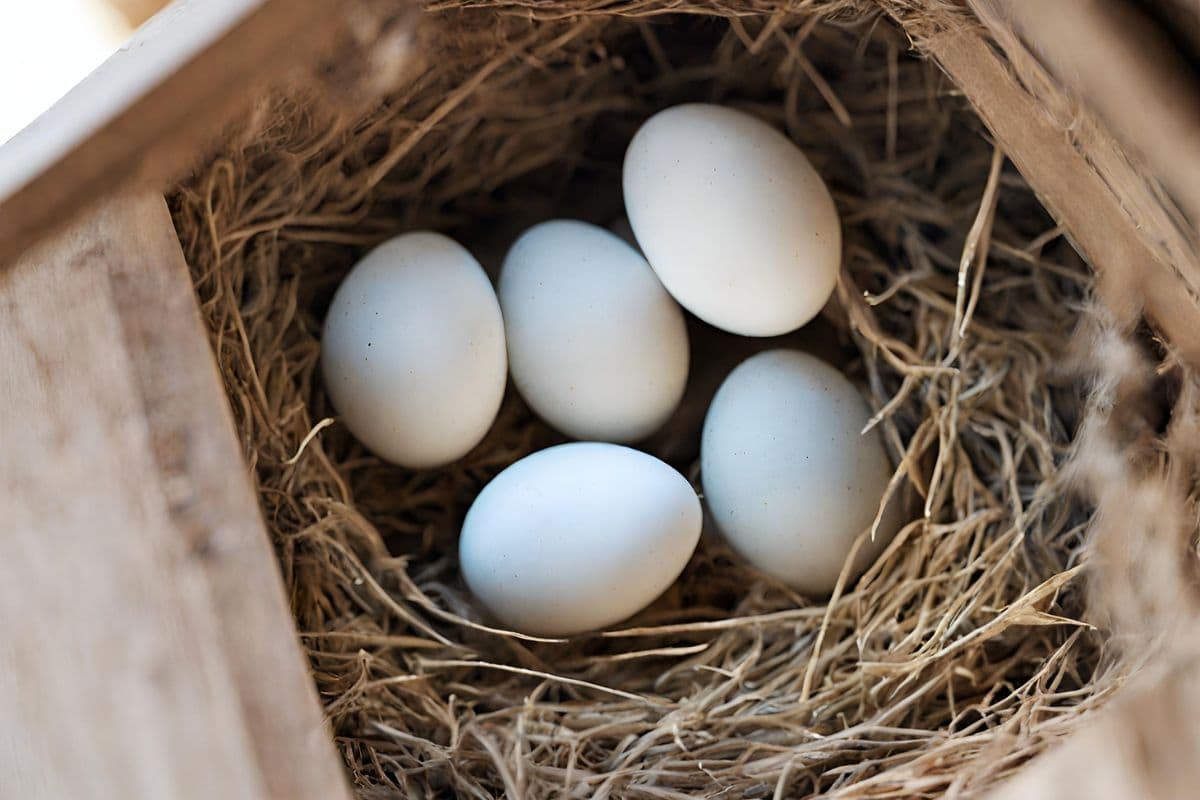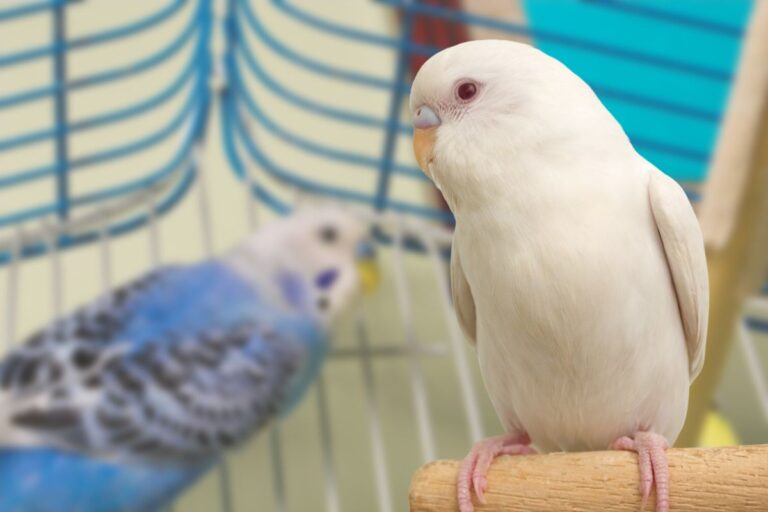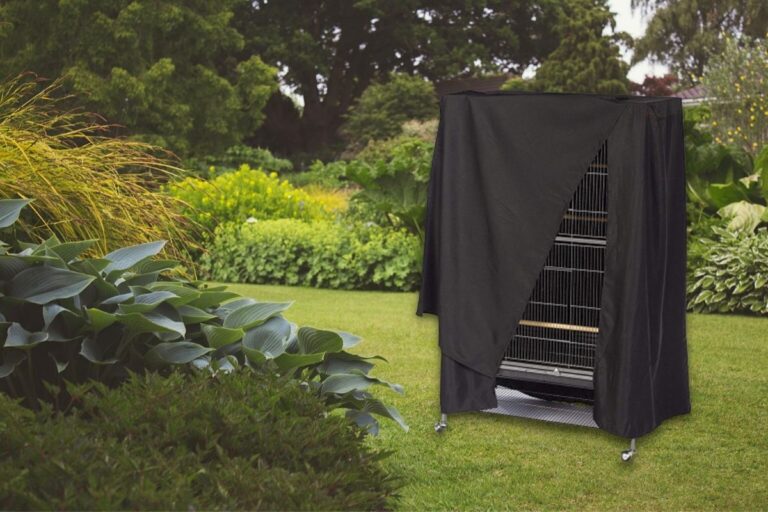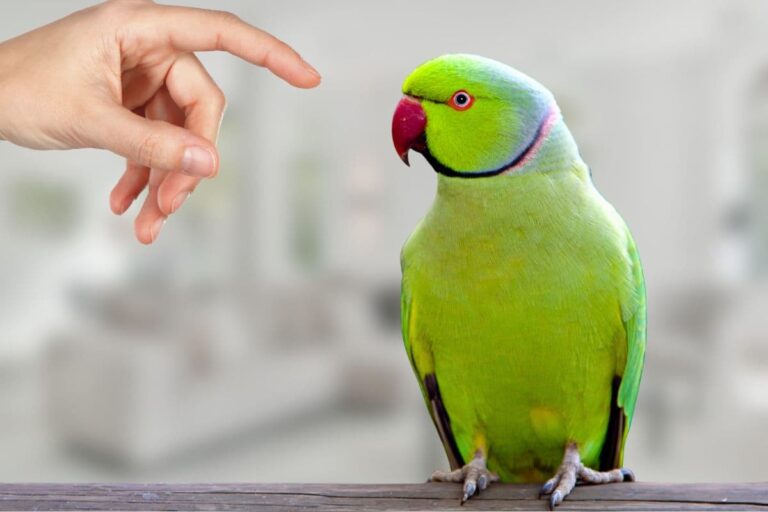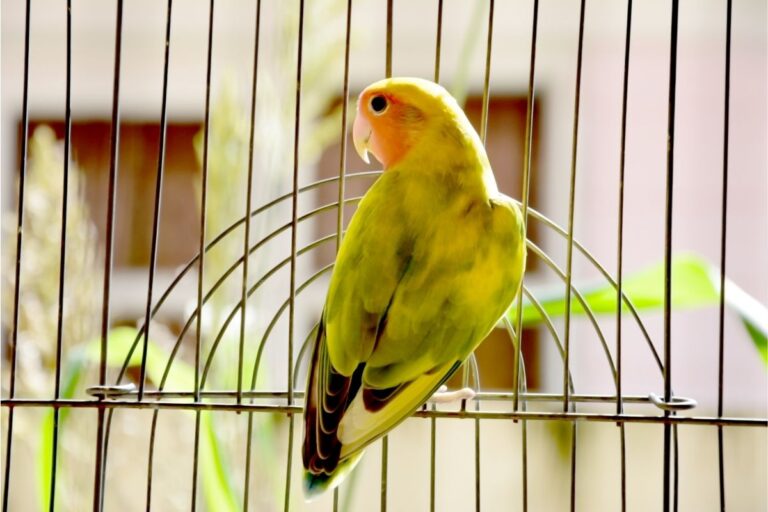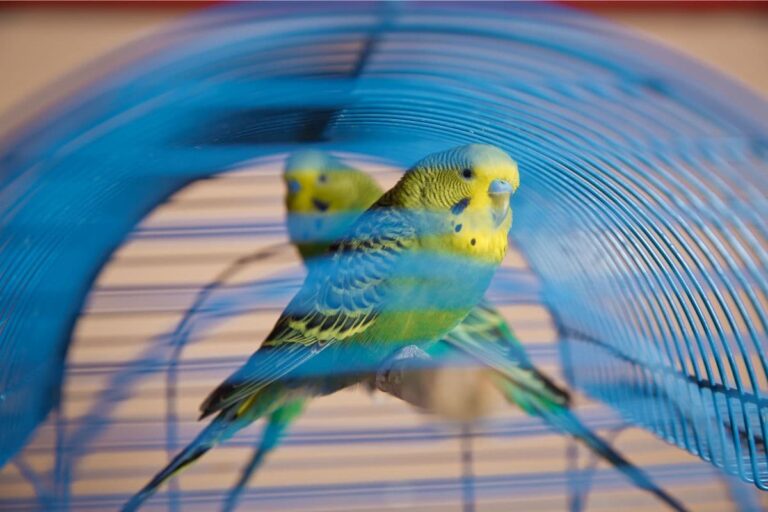Will a Parakeet Sit on Unfertilized Eggs
Disclosure: The opinions expressed in this post are my own. This post may also contain affiliate links, which means that I will receive a commission if you decide to purchase through my links, at no additional cost to you. As an Amazon Associate, I earn from qualifying purchases.
Have you ever wondered if a parakeet will sit on unfertilized eggs? Maybe you have a female parakeet and you’re curious if she will exhibit brooding behavior even without a mate.
Parakeets have a natural instinct to reproduce. This instinct can lead to egg-laying, even if there is no male present. So, if you’re wondering whether a parakeet will sit on unfertilized eggs, the answer is yes, they often will.
In this article, we will explore why parakeets sit on unfertilized eggs, how to deal with this behavior, and what to do if you find yourself with unfertilized eggs.
Will a Parakeet Sit on Unfertilized Eggs?
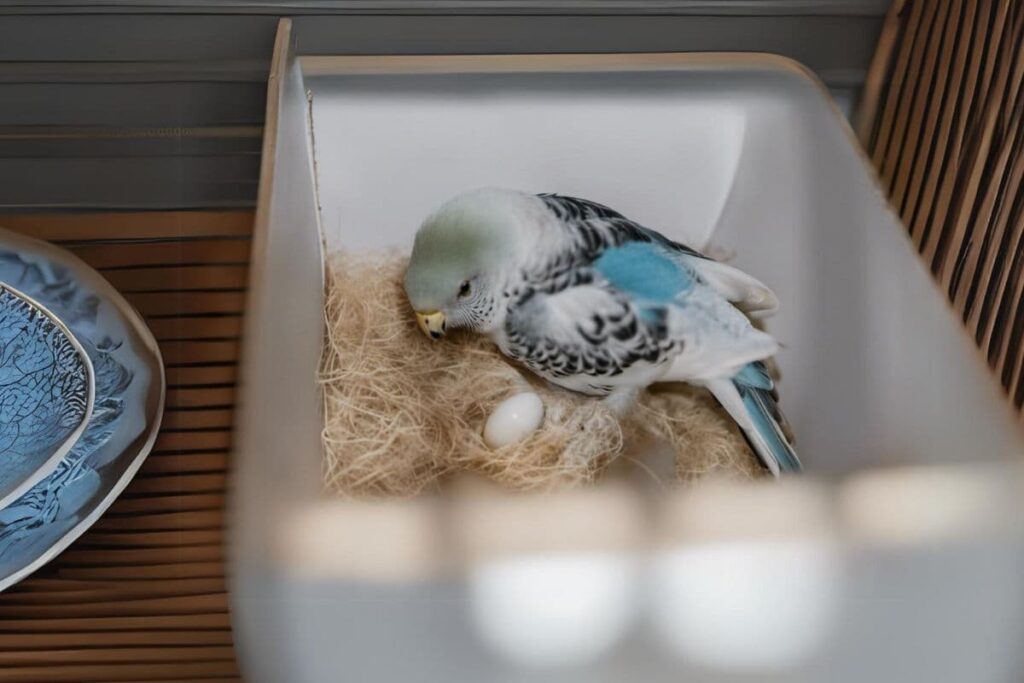
Parakeets will often sit on unfertilized eggs. This behavior is due to their natural instinct and urge to sit on round objects, which can include unfertilized eggs. Parakeets have a strong nesting instinct, and even if the eggs are not viable, they will still exhibit behaviors such as sitting on them, incubating them, and protecting them.
This behavior is not limited to parakeets and can be observed in many bird species. It is a natural instinct for birds to care for their eggs, regardless of whether they are fertilized or not. By sitting on the eggs, the parakeet is providing warmth and protection, just as they would for viable eggs.
It is important to note that parakeets may continue to sit on unfertilized eggs for an extended period of time, even after it becomes clear that the eggs will not hatch. This behavior is driven by their instinct and can be difficult to discourage.
Overall, it is normal for female budgies to sit on unfertilized eggs due to their instinct and urge to care for round objects. Understanding and accommodating this behavior is essential for providing a suitable environment for your pet parakeet.
Does a Parakeet Know That Their Eggs are Infertile?
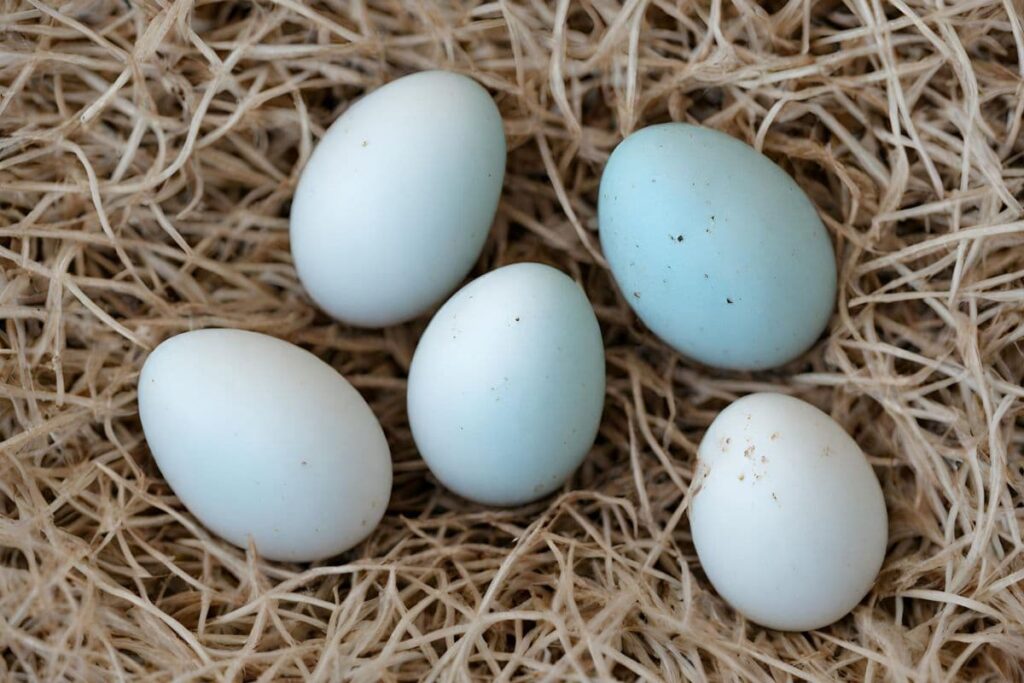
Parakeets, like many other birds, do not possess the ability to understand the concept of infertility. Unlike humans or mammals, birds do not have the same level of cognitive understanding when it comes to reproductive processes. Therefore, a parakeet does not know that their eggs are infertile, especially when the signs are not obvious enough for them.
When a parakeet lays eggs, it is simply following its natural instinct to reproduce. The female budgie will lay eggs even if there is no male present to fertilize them. This is known as “clutching” and is a common behavior in birds.
Once the female parakeet has laid her eggs, she will typically sit on them to provide warmth and protection. This behavior is known as incubation. The parakeet will continue to incubate the eggs for a period of time, regardless of whether they are fertile or not.
However, after a certain period of time, usually around 21 days, it becomes evident that the eggs are not hatching. At this point, the parakeet may abandon the eggs and stop incubating them. This is a natural response as the parakeet realizes that the eggs will not produce offspring.
How Does a Parakeet Know That Their Eggs are Infertile
Parakeets are instinctual creatures, and they have a remarkable ability to recognize whether their eggs are fertile or not. While it may seem surprising, parakeets can actually determine the fertility of their eggs without any external assistance.
1.Eggs Becoming Dry
When a parakeet lays an egg, it is initially moist and requires constant warmth and humidity for proper development. The mother parakeet diligently sits on the eggs, providing the necessary heat and moisture by transferring warmth from her body to the eggs through her brood patch.
As the incubation period progresses, the hen parakeet may occasionally leave the eggs to eat, drink, or stretch her wings. During these short breaks, the eggs may slightly cool down and lose some moisture. When the hen returns to her nest, she can sense the change in moisture levels of the eggs. If the eggs have become dry, it is an indication that they are infertile.
Parakeets have an instinctual ability to detect changes in temperature and humidity, allowing them to assess the viability of their eggs. If an egg has lost too much moisture, the parakeet will recognize that it will not hatch and may abandon it.
2.Changing of Color

When a parakeet lays an egg, it is usually a light pale translucent pink color. Whithin hours, the shell will turn white to light cream color if the egg is fertile. However, as time goes on and the egg remains unfertilized, the color will gradually change to a dull pink-beige color. This change is due to the breakdown of the egg’s yolk, which causes a shift in pigmentation.
Parakeets are aware of these changes and can recognize that the eggs are not developing. They have an innate ability to sense whether the eggs are viable or not, and they will usually abandon or neglect the eggs if they determine they are infertile.
3.Lack of Movement
When a parakeet lays eggs, she will typically sit on them and keep them warm in order to facilitate the incubation process. During this period, the parakeet will regularly rotate the eggs to ensure that they receive consistent heat distribution. However, if the eggs are infertile, there will be no movement or signs of development within them.
Parakeets have a keen sense of awareness and can detect the absence of movement through their sensitive beaks. They may gently tap or nudge the eggs to check for any signs of life. If they sense that the eggs are not developing, the parakeet will often abandon them and cease incubation.
4. Lack of Blood Vessels
If a parakeet has not mated or if the mating was not successful, the eggs laid will be infertile, which means that the egg does not contain a developing embryo and will not hatch into a baby bird. Without the presence of fertilization, the egg will lack blood vessels, as there is no need for nutrient and oxygen transportation to support embryo growth.
Parakeets may be instinctively aware of the absence of blood vessels within their eggs. This knowledge allows them to differentiate between fertile and infertile eggs. They can sense this through various cues such as temperature, weight, and even visual inspection.
How Long Will a Parakeet Sit on Unfertilized Eggs
If the eggs are unfertilized, meaning there is no male parakeet involved in the breeding process, the female parakeet will eventually realize that the eggs are not viable and will abandon them.
The amount of time that a parakeet will sit on unfertilized eggs can vary. Some parakeets may only sit on the eggs for a few days or a week before abandoning them, while others may continue to sit on them for several weeks. It really depends on the individual bird and its instincts.
On average, parakeets will incubate their eggs for approximately 3-4 weeks if it is not evident to them that the eggs aren’t fertile. During this time, the female parakeet will spend most of her time on the nest, only leaving briefly to eat, drink, and relieve herself. The male parakeet, if available, will also assist in the incubation process, taking turns with the female to sit on the eggs.
Are There Risks for Your Parakeets for Sitting on Eggs?
While it is generally safe as a one-off event, there are some slight risks for parakeets that sit on unfertilized eggs for too long.
When a parakeet is sitting on eggs, she may neglect her own nutritional needs. This can lead to a lack of essential vitamins and minerals, which can result in health problems for the bird. It is important to ensure that the parakeet has access to a well-balanced diet during this time.
Additionally, if the parakeet is sitting on eggs for an extended period of time, it may become more territorial and aggressive towards other birds or even its human caretakers. This can cause stress and potential harm to both the parakeet and those around it.
If you notice any signs of distress or health issues in your parakeet while sitting on eggs, such as lethargy, loss of appetite, or difficulty breathing, it is crucial to seek veterinary assistance promptly.
How to Stop My Parakeet from Sitting on Unfertilized Eggs?
Here are some steps you can take to break this broody behavior in your parakeet.
1. Remove the Eggs
The first step is to remove the unfertilized eggs from the nesting area. Leaving the eggs in the cage can encourage the parakeet to continue sitting on them. Make sure to handle the eggs carefully and dispose of them properly.
2. Rearrange the Cage
Rearranging the cage can help break the parakeet’s nesting behavior. Change the position of perches, toys, and other elements in the cage. This will create a new environment and distract the bird from its desire to sit on eggs.
3. Limit Nesting Materials
Parakeets often use nesting materials like shredded paper or cloth to create a cozy nest. By reducing or removing these materials from the cage, you can discourage the parakeet from creating a nest and sitting on eggs.
Also be sure to remove any nest box or other structure that may be providing a dark spot or quiet area for the parakeet to sit in.
4. Adjust Lighting and Temperature
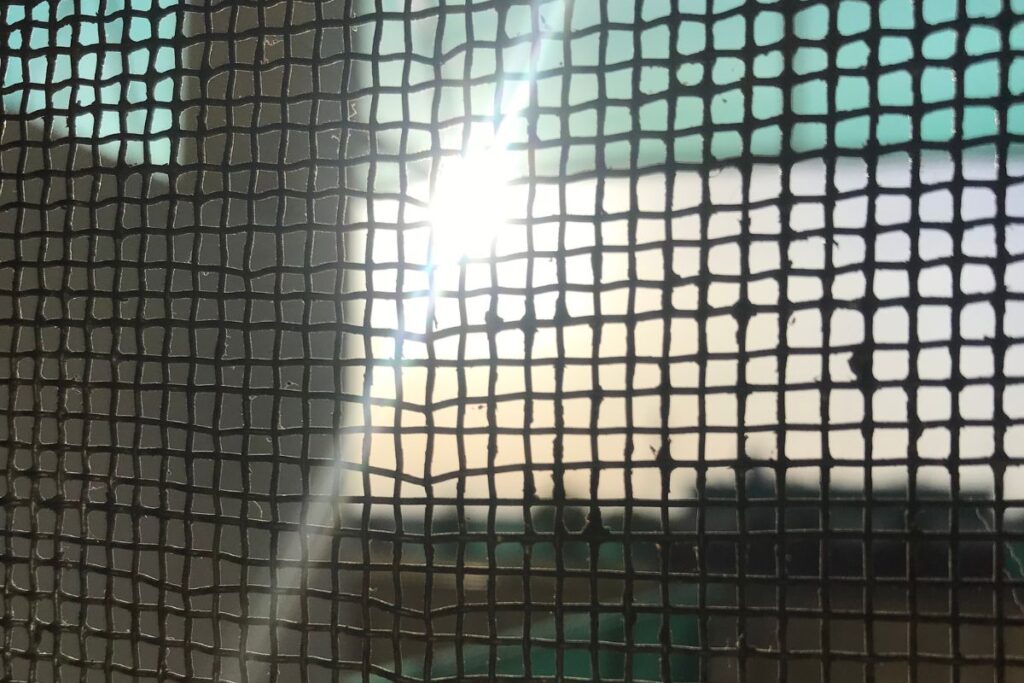
Parakeets are more likely to engage in nesting behavior when they feel that it is the right time to breed. By adjusting the lighting and temperature in the room, you can create an environment that is less conducive to breeding. Avoid providing excessive daylight hours or keeping the room too warm.
You can also place your parakeet in complete darkness for 12-14 hours a day in order to break its reproductive cycle.
5. Provide Mental and Physical Stimulation
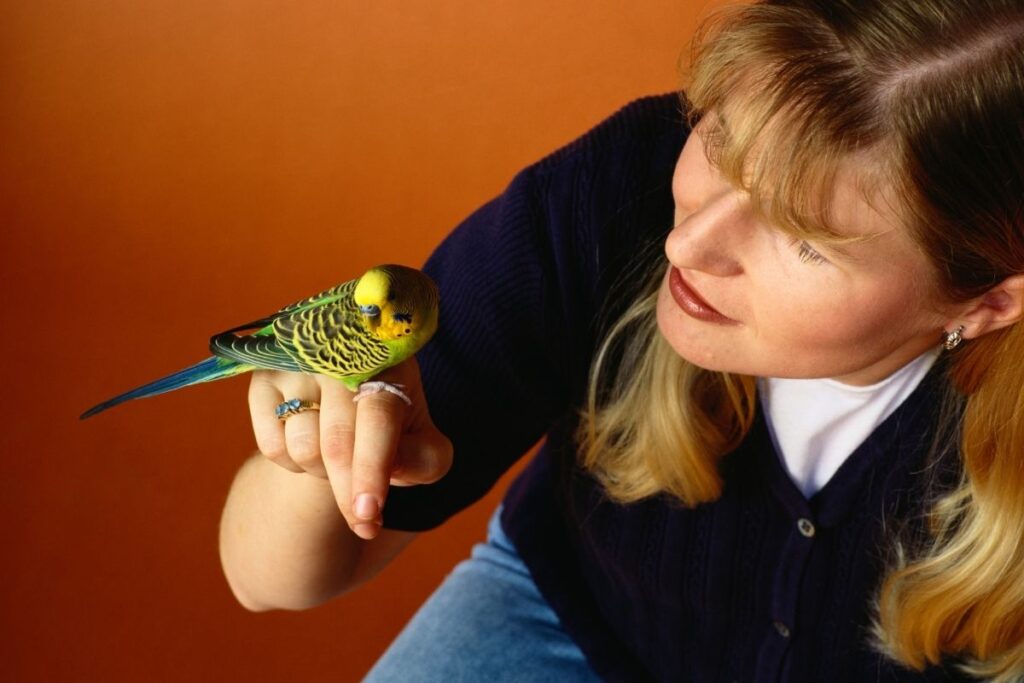
Boredom can be a contributing factor to a parakeet’s desire to sit on eggs. Ensure that your parakeet has plenty of mental and physical stimulation. Offer a variety of toys, rotate them regularly, and engage in interactive playtime with your bird.
6. Consult with a Veterinarian
If your parakeet continues to exhibit nesting behavior despite your efforts, it may be beneficial to consult with a veterinarian who specializes in avian health. They can provide further guidance and rule out any underlying health issues.
Final Words
While parakeets may lay unfertilized eggs, they may still sit on them as if they are fertile. They may only stop doing it once it becomes evident that the eggs do not appear to hold any potential for hatching.
You may want to consider taking steps to break this broody behavior where possible by following the steps we have already outlined above. Also, monitor your bird closely for any signs of distress or health issues. If you are concerned, consult with a veterinarian for further guidance.
We hope this article has been helpful and wish you and your parakeet the best of luck.



